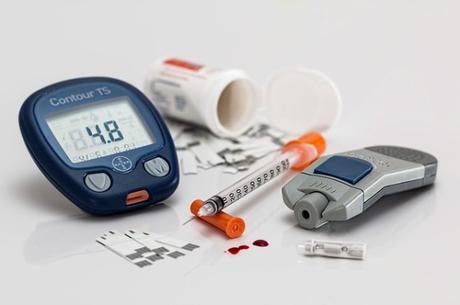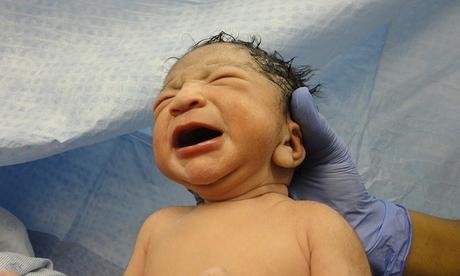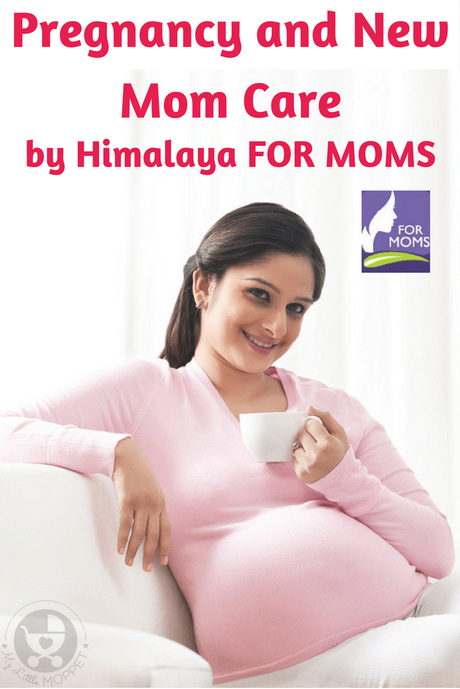August 10, 2017 Leave a Comment
Pin2 +11 Share Tweet WhatsAppShares 3“Pregnancy is the beginning of all things – wonder, hope and endless possibilities.”
Pregnancy is a lovely phase for every woman. It’s about growing a tiny life inside her body and never being alone anymore. It is also about marveling at the miracle of her body as it transforms across nine months to make space for the baby and prepare for delivery. However, these changes can also cause some trouble and confusion in expectant Moms, which often continue after delivery. It was to tackle such doubts and questions that Himalaya FOR MOMS organized a Facebook Live session with renowned gynecologist Dr. Hema Divakar. The session was held on Himalaya BabyCare Facebook Page and had great response!
Dr. Hema was absolutely lovely and cleared everyone’s doubts with a smile on her face. She tackled everyone’s questions with ease and gave answers in simple, everyday language. I enjoyed the session completely and think it was perfect for new and expectant Moms. I know there may be some of you who probably missed the session, so I’ve compiled together some of the most important points Dr. Hema talked about and listed them here.
Pregnancy and New Mom Care by Himalaya FOR MOMS

Irregular Periods
Many women with irregular periods worry about getting pregnant. Dr. Hema eases their fears by saying that in most cases, it shouldn’t be a problem. It is advisable to get hormone tests to ensure that ovulation is happening properly.
PCOS or Poly Cystic Ovarian Syndrome is a common cause for irregular periods, though not the only one. It can result in obesity and hormonal imbalances which can affect conception. It is important to remember that stressing about it can worsen the condition.
Dr. Hema also talked about menstrual pain post delivery. This is due to the cramping of the uterus, which may be a little harder than usual menstrual periods, and often dissipates soon enough.
Obesity

Obesity is a problem that is reaching epidemic proportions these days, especially among the urban population. This is usually a result of a sedentary lifestyle combined with an increased intake of junk food. It also affects the chances of getting pregnant, which is why Dr. Hema recommends getting obesity under control before even thinking about conceiving.
One way to do this is to check your BMI before pregnancy. A healthy BMI is ideally between 23 and 25, and certainly before 30. It is important to get this down before conceiving to avoid complications like diabetes, premature birth, malformed babies or increased chances for operative procedures.
It’s just as important to keep obesity at bay during pregnancy. The old adage of ‘eating for two’ doesn’t really apply anymore. A normal weight gain is around 8-10 kg and probably less if the mother is obese. A restricted calorie intake is essential to control weight before conceiving and after delivery.
Pelvic Girdle Pain
Pelvic girdle pain is a common symptom during pregnancy and the postpartum period. It is experienced as pain and difficulty in movement in the pelvic joints. While the main causes are the growing size of the baby and pregnancy hormones, the symptoms can be aggravated by wrong posture, Calcium or Vitamin D deficiency and lack of exercise.
If the pain gets intense, it is important to consult a doctor who can check for any other underlying condition. He may recommend dietary supplements or exercises.
Diabetes

Diabetes is probably the most common lifestyle disease plaguing our society today, and with our South Asian genes, Indians are 11 times more prone to get diabetes during pregnancy. Dr. Hema explains why pregnancy ups a woman’s chances of diabetes. Insulin is what regulates blood sugar in the body, but pregnancy hormones tend to prevent the body from producing insulin which can get blood sugar levels up.
To avoid diabetes-related complications during pregnancy, it is recommended to check blood sugar levels during early and mid-pregnancy. It is also important to keep a check on nutrition, and make sure to eat the right kind of foods throughout pregnancy.
Thalessemia
Thalessemia is a genetic blood disorder that can have serious consequences. Having Thalessemia minor itself isn’t a problem, but if both parents are Thalessemia minor then they have a possibility to have a child who is Thalessemia major. That is why having a hemoglobin check is recommended for all pregnant women.
Dr. Hema also advises checking a child’s hemoglobin to see if she is Thalessemia minor. If she is, then it’s important to check for potential partner’s blood groups too, so that there are no problems in the future.
Pregnancy Skin Care

Skin is prone to many changes during pregnancy, due to the change in hormones. Stretch marks are mainly due to dry skin, so it is advisable to use moisturizer right from the first trimester. During pregnancy, skin is like stretched elastic, and the lost tone may persist after delivery.
Massage is a good option post delivery, and should work for all kinds of deliveries. Any kind of massage oil may be used, but needs to be performed by a trained person. A toning massage oil with ingredients like sesame oil and aloe vera will help in strengthening and firming the skin, while nourishing it at the same time.
Hair fall post pregnancy is a common problem, which can be fixed by using supplements containing vitamins to support hair roots. A good combination of the right kind of herbs provides a safe and natural option to curb hair fall during the post partum stage.

Bhringaraja or Kesharaja (Eclipta alba) is rich in phytochemicals like eclalbosaponins and wedelolactone which help promote hair growth and strengthen the hair roots. Palasa or ‘flame of the forest’ (Butea Frondosa) is a native Indian plant that improves tensile strength of hair, increases hair thickness and stimulates hair growth. Amla or Indian gooseberry (Emblica officinalis), a natural hair tonic used extensively in Ayurveda, helps maintain hair color, delays premature greying and supports the strength of hair follicles.
A complete hair care routine with a good hair oil, shampoo and leave in cream that contains beneficial herbs like the ones mentioned above is highly recommended. It’s also a good idea to check for Thyroid function to rule out any deficiencies.
Yoga during Pregnancy
Dr. Hema is a strong advocate of yoga during pregnancy. She is of the opinion that yoga can be de-stressing for the expectant mother, while making her flexible and providing adequate blood flow to the baby. The only thing to remember is to avoid poses that include lying flat on the back, especially after the first trimester.
Making a Birth Plan
Dr. Hema recommends making a detailed birth plan well in advance. She suggests discussing all aspects of the delivery with your doctor – what kind of delivery you’d like, what kind of pain relief and anything else. For example, there are various kinds of pain relief, like epidural or spinal anesthesia. This is also the perfect time to sort out any concerns regarding the actual delivery or post delivery care.
VBAC

VBAC is vaginal birth after Cesarean section. While this is entirely possible, it’s viability depends upon the individual case, on factors like why the Cesarean was done earlier etc. A detailed discussion with the doctor is absolutely essential before setting out for a VBAC. The biggest risk is with a scarred uterus – too much stretching and contracting may cause the stitches to give way. Due to this it is essential to choose a center with excellent facilities so that should the need arise, the patient can be switched to an OT immediately.
Breast Care
Breastfeeding is recommended by leading world organizations on child care, especially for the first six months of a child’s life. However, problems like cracked nipples can affect a smooth breastfeeding journey. Dr. Hema recommends using a natural moisturiser like butter or coconut oil to massage the nipples and breast.
Post Pregnancy Nutrition
Nutrition is very important for the postpartum period. Most doctors will recommend Calcium supplements as well as iron in case of excessive blood loss. It is also recommended to increase protein intake for first three months.
Iron supplements help to prevent anemia. Iron can also be found in foods like green leafy vegetables, jaggery and beetroot.
Weight Loss post Pregnancy

Losing weight after pregnancy is one of the biggest challenges new Moms face. Within 6 weeks, the pregnancy hormones settle down and all systems come back to normal. Dr. Hema strongly recommends starting to work out 6 weeks after delivery, for all kinds of deliveries.
The best time to lose weight is the first 3-6 months after delivery. You can start with a light workout, like a 15-20 min walk or routine household chores. Slowly but gradually, the intensity can be increased till the target weight is reached.
As you can see, Dr. Hema Divakar touched upon all important aspects of pregnancy and new Mom care in the session by Himalaya BabyCare. I’m pretty sure many Moms found the talk immensely useful – I know I did!

Want to see videos of our recipes ?
VISIT OUR YOUTUBE CHANNEL Pin2 +11 Share Tweet WhatsAppShares 3
Filed Under: Health, Moms, Pregnancy Tagged With: health, health tips, healthy, himalaya, mom, Moms, new moms, pregnancy
